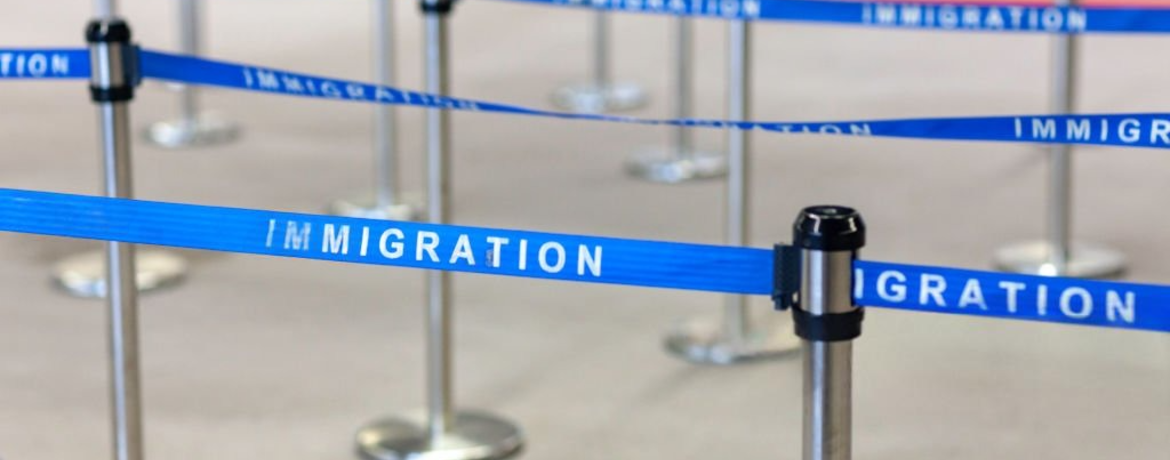
International Arrest Warrant - Legal aid for Interpol Arrest Warrant
In today’s world, crime is increasingly taking on a transnational character. Individuals suspected of committing International crimes can cross national borders in attempts to evade justice. In such circumstances, international cooperation in law enforcement becomes critically important. One of the key tools of such cooperation is the international arrest warrant.

While International arrest warrants are a complex legal issue, we are ready to offer you expert legal assistance in challenging and defending against such cases. Our team of Interpol lawyers constantly works on preventing unfair detentions and effectively addressing issues related to world wide warrant search.
What is an international arrest warrant?
An international warrant is an official request from one country to another for the detention and subsequent extradition of a person suspected or accused of committing a crime. This International alert is issued by competent judicial or law enforcement authorities and is valid beyond the jurisdiction of the initiating country.
The basis for issuing and executing international arrest warrants lies in bilateral and multilateral agreements between countries. The act for which the individual is accused must be considered a crime in both countries involved. The procedures must adhere to international human rights standards, including the right to a fair trial.
Goals of the international arrest warrant:
- Stopping the activities of criminals trying to flee abroad;
- Ensuring justice;
- Strengthening international relations and joint efforts to combat crime.
The mechanism for issuing and executing an international arrest warrant
The competent authorities of the initiating country issue a valid national arrest warrant. International distribution of the warrant can be done through the International criminal police organization (Interpol) by submitting a request for a Red Notice or through bilateral channels (directly approaching the state where the individual is believed to be located).
The country that receives the request to locate and provisionally arrest the individual follows its own laws to detain the suspect. The extradition process begins after an order or notification is received. A national court decides whether the request meets the requirements for extradition surrender or similar legal action. If the decision is affirmative, the individual is handed over to the requesting country.
Need legal assistance with contesting an international arrest warrant or removal of Interpol’s red notice The specialists on our team have the experience and knowledge to protect your rights and interests on the international stage.
Types of International Arrest Warrants
There are several mechanisms through which international warrants can be issued:
International arrest warrants are aimed at facilitating international cooperation in law enforcement. There are several mechanisms for issuing such warrants.
Interpol Red Notices
An Interpol Red Notice is a formal request from one Interpol member country to other member countries for assistance in locating and provisionally arresting a person pending extradition for a serious crime. While a Red Notice is not an international arrest warrant, it’s among the most popular prosecution mechanisms i International law. It serves as a basis for law enforcement agencies in other countries to take action under their national laws.
Main functions of the red notice:
- Assistance in locating a suspect or convicted person who is evading justice.
- Assisting in the provisional arrest of an individual followed by their transfer to the country that initiated the notification, unless a valid extradition treaty exists.
- Strengthening ties between law enforcement authorities from different countries for effective combat against transnational crime.
According to Interpol’s constitution, Red Notices should contain detailed information about the person wanted and the nature of the charges. That includes:
- Identification information: full name and aliases, date and place of birth, citizenship, identification photographs, tattoos, scars, and other distinguishing features;
- Legal Information: A detailed report on the alleged crime, the criminal code articles under which an individual was charged or convicted, their legal status, and information about an arrest warrant.
- Requests and measures: request for temporary arrest for extradition purposes, contact information, and more.
European Arrest Warrant (EAW)
The European Arrest Warrant (EAW) is a judicial decision issued by an EU member country to arrest and surrender to another member country a person suspected or convicted of committing a criminal offense. This mechanism replaces traditional extradition proceedings between EU countries, making the process faster and more efficient.

A valid national arrest warrant is issued by a judicial body, not a political or administrative one. Member countries are required to recognize and enforce an European Warrant issued by the judicial authority of another member state. The use of a uniform form and standard procedures simplifies and speeds up the extradition proceedings, unless a valid extradition treaty exists.
The judicial authority of the requesting country issues an European Warrant based on a national arrest warrant. The EAW is sent directly to the competent authorities of another country or through the SIRENE system. Law enforcement agencies of the executing country detain the person sought. The court checks for formal requirements and grounds for refusal.
If there are no grounds for refusal, the person is handed over to the initiating country for criminal proceedings.
Grounds for refusal to perform:
- The crime falls under amnesty in the country where it was committed.
- The absence of the crime in national legislation (the principle of dual criminality);
- Risk of violation of a person’s fundamental rights.
The average transfer time is about 16 days with the person’s consent and 48 days without consent.
International Criminal Court (ICC) arrest warrants
The International Criminal Court was established based on the Rome Statute, adopted in 1998 and coming into effect in 2002. The court’s headquarters are located in The Hague, Netherlands. The ICC is the first permanent international court with jurisdiction to prosecute individuals for the most serious crimes of concern to the international community.
An ICC arrest warrant is an official court order that mandates state authorities to detain and surrender to the court an individual accused of committing crimes that fall under the ICC’s jurisdiction.
ICC Arrest warrants are issued under Article 58 of the Rome Statute of the ICC. According to this article, if there is reasonable ground to believe that a person has committed a crime that falls under the court’s jurisdiction, and their arrest is necessary for:
- Ensuring appearance in court;
- Preventing obstruction of an investigation or judicial proceedings;
- Preventing further commission of crimes.
The ICC can carry out arrests for crimes committed within the territories of countries that have ratified the Rome Statute, or against citizens of those states.
The Prosecutor of the ICC can initiate an investigation on their own accord, at the request of a member state, or through a referral by the UN Security Council. The Prosecutor gathers evidence that proves an individual’s involvement in crimes and then approaches the Pre-Trial Chamber to issue a warrant. If the Chamber believes there are reasonable grounds, it issues the warrant. This warrant is then sent to member states for execution.
Member states are required to cooperate with the ICC and execute warrants. National law enforcement authorities detain the suspect and transfer them to The Hague. If the suspect is located in a country that is not a party to the Rome Statute, executing the warrant can be challenging.
The purpose and impact of international arrest warrants
International arrest warrants play a pivotal role in the global fight against crime, ensuring effective cooperation between nations in matters of justice, security and public safety. Their primary aim is to apprehend and extradite wanted persons accused of serious crimes, such as terrorism, human trafficking, drug trafficking, war crimes, and genocide.
The impact of international arrest warrants extends beyond court proceedings. They strengthen international legal norms, support justice on a global scale, and contribute to stability by helping protect the rights of victims and their families. Thanks to such warrants, countries’ legal systems have more opportunities to effectively counter international threats and ensure global security.
How International Arrest Warrants are Issued and Executed
Every member country has its own legal framework governing the process of issuing and executing warrants. These laws define the authority of the agencies involved, the procedure for reviewing requests, and the rights of individuals who are subject to a warrant.
The process for issuing an international warrant is as follows:
- Initiation of criminal prosecution. Law enforcement or the judicial authorities of the requesting country begin an investigation regarding the suspect. A court or another competent authority issues a warrant within the framework of national legislation.
- Preparing a request for an international search. Gathering all necessary documents, the indictment, and other evidence proving a person’s involvement in a crime. Specifying legal
- Appeal to international organizations. The requesting country can request Interpol to issue a red notice or other colour coded notices. Within the European Union, states use the European Arrest Warrant (EAW) to expedite and simplify extradition procedures.
- Submitting a request to other member countries. The request is sent through the Ministry of Foreign Affairs or the Ministry of Justice. In some cases, direct communications between law enforcement agencies are possible.
The competent authorities are checking whether the request complies with national legislation and international obligations. They are verifying whether the act constitutes a crime in both member states.
Law enforcement authorities detain a suspect based on a provided warrant or an Interpol red notice. It is mandatory to inform the individual of the reasons for the detention and their rights.
The court is reviewing the legality of the detention and the possibility of extradition. A decision on whether to grant or deny extradition is made based on the evidence presented and applicable laws. Grounds for denial include: risk of human rights violations, political nature of the crime, refugee status, and statute of limitations having expired.
Contesting an international arrest warrant
International arrest warrants are a powerful tool in the fight against transnational crime. However, sometimes these warrants can be issued improperly or used for political persecution. In such cases, it’s important to know how the accused individual can legally challenge an international arrest warrant to protect your rights and freedoms.
Legal grounds for contesting:
- Human rights violation;
- Risk of cruel treatment, torture, or the death penalty;
- The charges are politically motivated;
- Risk of political persecution;
- Absence of the principle of double jeopardy;
- Disputed legal classifications of the act;
- Statute of limitations for the crime;
- Failure to comply with procedural norms in issuing a warrant;
- Lack of reasonable suspicion or evidence.
After being detained on the basis of an international warrant, the individual has the right to challenge the arrest in a national court. During the legal proceedings, it’s necessary to present arguments and evidence disputing the legality of the detention and extradition. The court may decide to deny extradition if it finds grounds to do so.
You can also apply for political asylum status based on the risk of persecution. Immigration authorities will review the request and, if necessary, appeal the court decision. Another option for resolving the situation is to appeal to international judicial bodies: the European Court of Human Rights, the UN Human Rights Committee, and others.
A qualified lawyer can effectively represent your position and protect your rights. If you do not speak the language of the country where the arrest took place, you have the right to an interpreter. It’s important to act quickly, as the deadlines for filing an appeal may be limited.

What is the Interpol notification system?
The Interpol notification system is a network of international messages used for exchanging information between countries about individuals who pose a security threat, as well as for assisting in criminal investigations. Interpol issues several types of notices, each with its own purpose and intended for different situations.
According to Interpol’s rules, here are the most common types of notices
- Red Notice: the most popular type of Interpol notices, often equated to an international arrest warrant. It is used to locate and arrest individuals for the purpose of their subsequent extradition.
- Blue Notice: used to establish the location, identification, and obtain additional information about individuals of interest in criminal investigations;
- Green Notice informs law enforcement agencies about a person’s criminal activities, helps prevent potential crimes through the exchange of information about potentially dangerous individuals.
- Yellow Notice: search for missing persons or those unable to identify themselves, including minors.
- Black Notice: identification of unidentified bodies;
- Orange Notice: Notifying about threats related to terrorism, weapons, explosives, or biological and chemical agents helps prevent potential attacks or incidents.
- Purple Notice: Exchange of information on the methods, means, and procedures used by criminals.
There’s also a special notice called the INTERPOL-United Nations Security Council Special Notices, which is issued in conjunction with the United Nations Security Council. The main purpose of this notice is to inform about individuals and organizations that are subject to UN sanctions.
How can our Interpol lawyers help you?
Our experienced International warrant attorneys have extensive knowledge in dealing with Interpol cases, so they’re ready to provide comprehensive assistance to individuals facing extradition or Interpol notices.
Experienced professionals will conduct a comprehensive analysis of the grounds for issuing a Red Notice and identify any potential violations of the client’s rights. We will provide a well-reasoned position and file an appeal with the CCF Commission to achieve the removal of the notice.
If necessary, our team will assess the legality and appropriateness of the extradition request, identify any potential violations, and submit petitions for denial of extradition based on international standards and human rights principles.
We’ll help clients assess potential reputational risks and develop a strategy to minimize them, up to and including the removal of notifications. If there’s a risk of a client being added to the Interpol database, our lawyers can initiate preventive inquiries.
Our attorneys have years of experience working with Interpol and international legal institutions. Their extensive contacts and partnerships with law firms and experts around the world allow us to quickly and efficiently tackle legal issues of any complexity. Each case is considered with attention to all its unique features and nuances.
If you find yourself in a similar situation or want to prevent potential problems, reach out to us. Our experts are ready to provide qualified assistance and support at every stage of the process.






